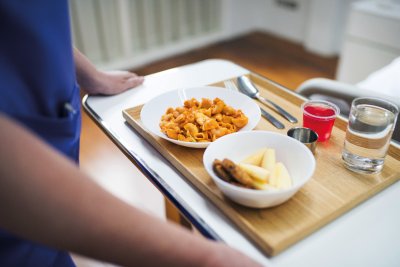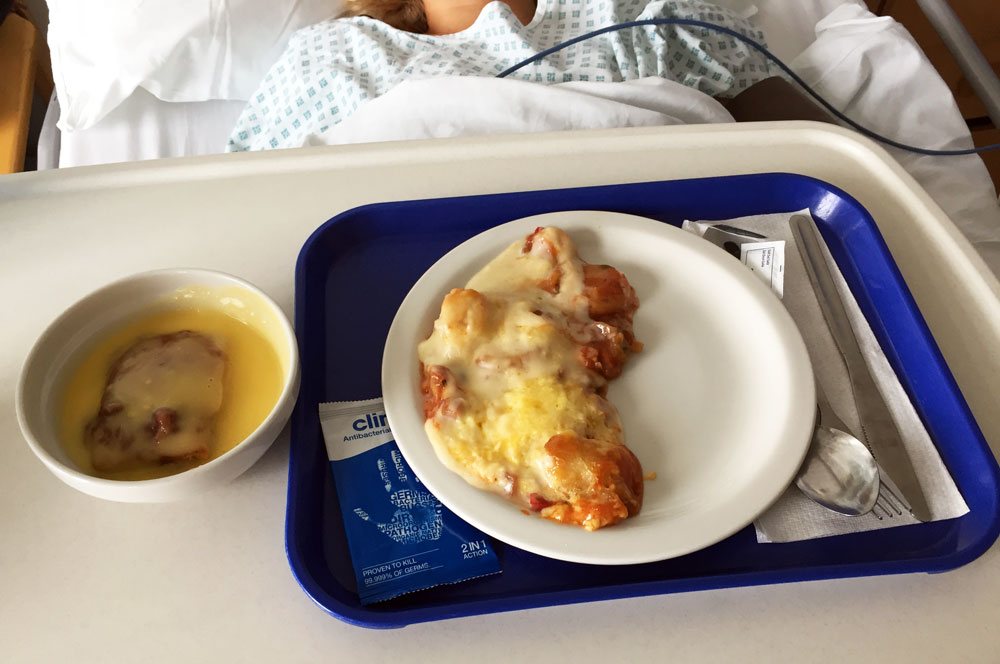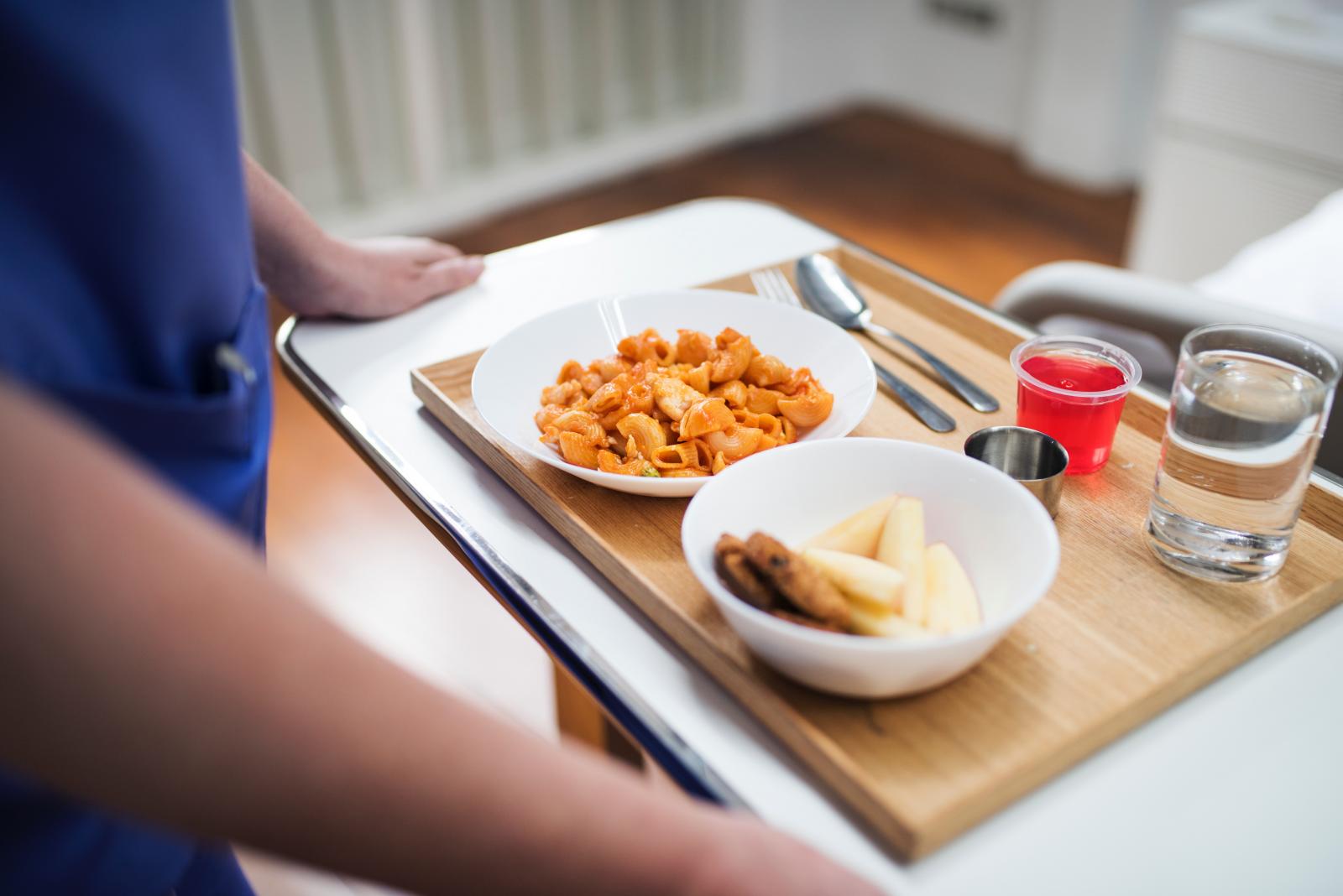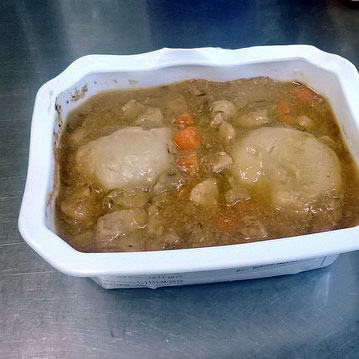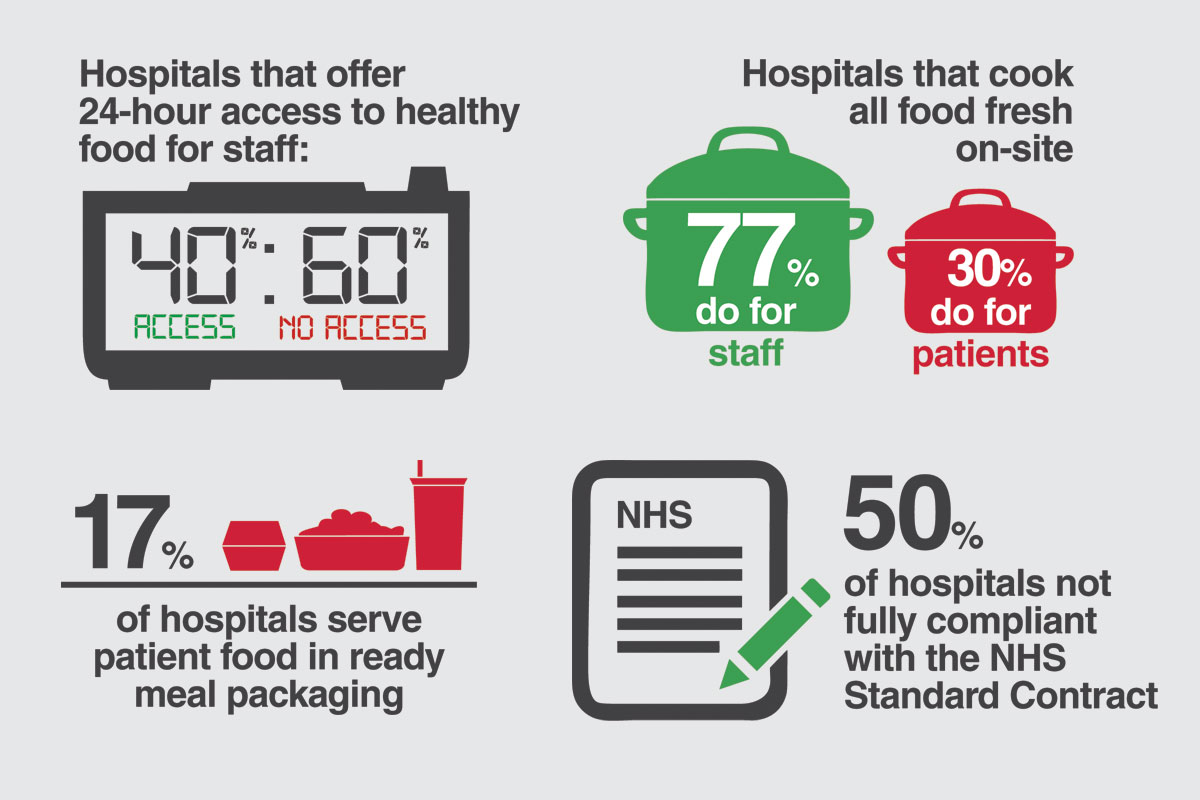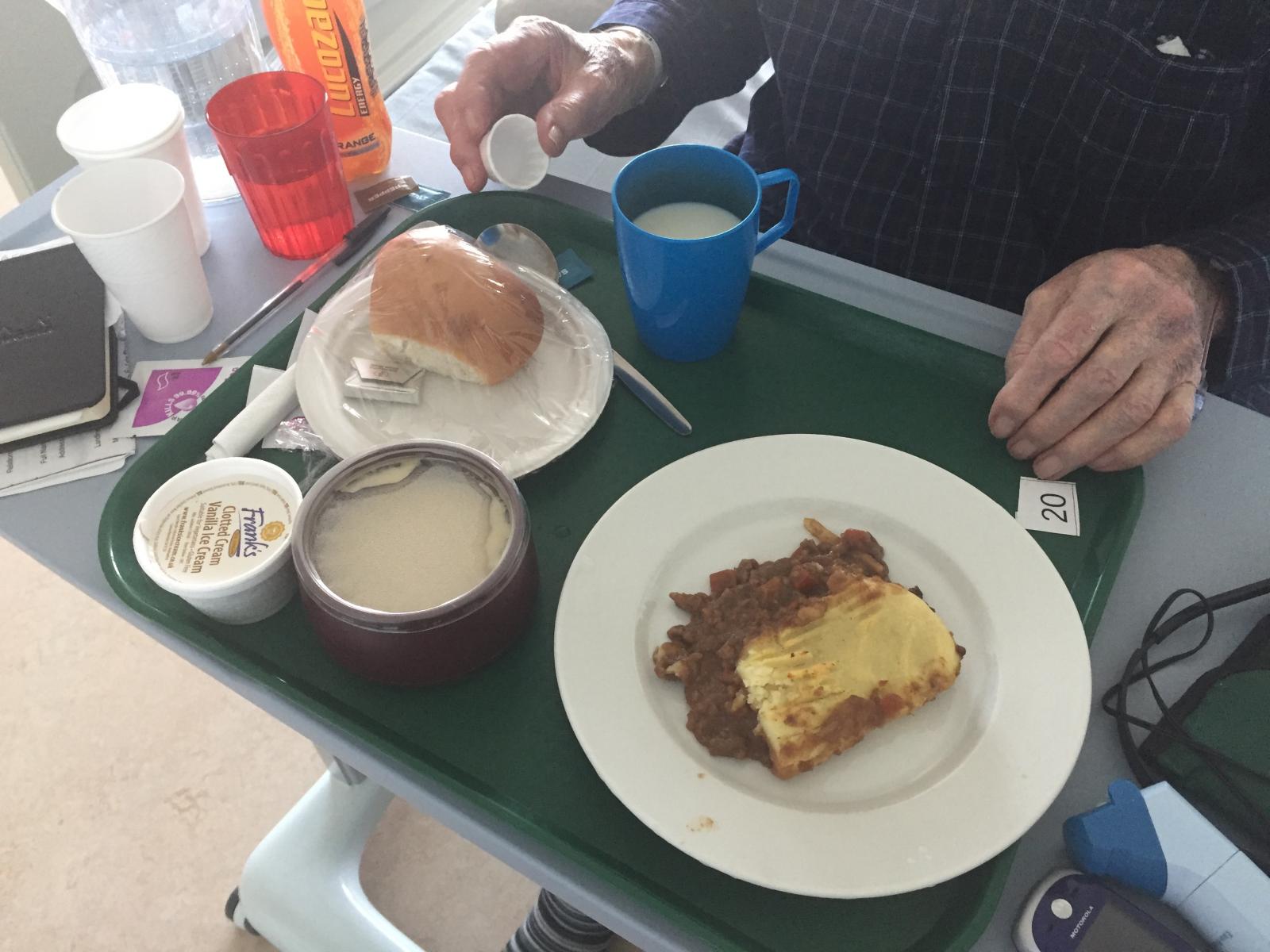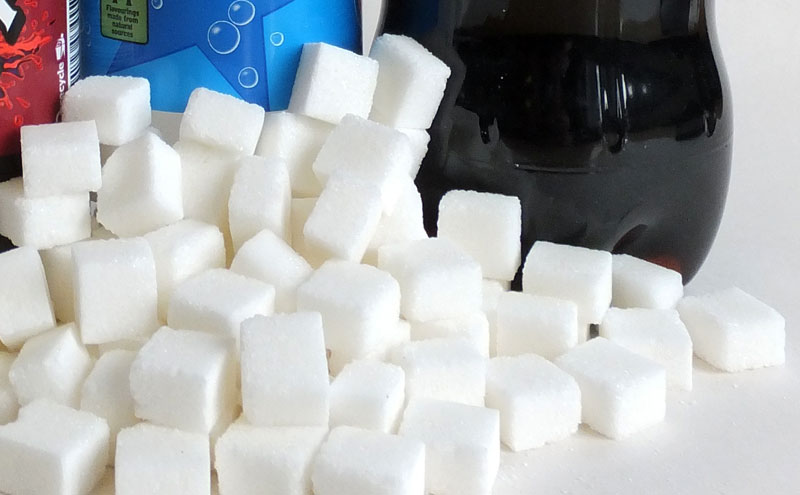More than one in three hospital trusts have cut spending on patients’ meals in the past year, the Telegraph can disclose.
Food bills have been reduced by more than two thirds in certain NHS trusts, with some hospitals now spending as little as 69p on each meal, according to official figures.
At one hospital that cut its food bill, inspectors found new mothers attempting to breastfeed their babies while hungry because they were left without food for 14 hours a day.
Meals at one trust were described as “worse than prison”, while fresh fruit is a rarity at others, inspectors found.
The cuts to food budgets come as NHS finance managers face growing pressure to reduce costs, and amid rising concern about the standards of care given to patients in the wake of the Mid Staffordshire scandal.
Campaigners fear patients’ recoveries are being jeopardised by ready meals that are high in salt and fat. On average, hospital trusts spent £9.77 on food per patient per day last year, up by £1.10 on the previous year.
But there were wide variations, and last year 95 out of 262 hospital trusts cut their food bills, according to Department of Health data.
Lambeth primary care trust cut daily food spending from £15.26 per patient per day to £4.89 per patient per day, while Lewisham health care trust cut spending from £10.10 to £6.22, the data shows. Nottinghamshire County trust cut spending from £15 per in-patient per day to £6.11. The three bodies have since been abolished under Coalition health reforms.
The data also reveals variations in spending at individual hospitals within the same trust.
Mytton Oak Community Unit, a mental health hospital which is part of South Staffordshire and Shropshire NHS Foundation Trust, spent just £2.07 a day on each patient’s food last year, according to Department of Health data.
A trust spokesman said the DoH figures failed to represent the full cost of providing meals.
Orpington Hospital, which was part of the now dismantled South London NHS Trust, spent £2.55 on each patient’s food a day.
Four NHS trusts that cut their food budgets last year are among the 14 under investigation by Sir Bruce Keogh because they have unusually high death rates: Dudley, North Cumbria, Tameside and United Lincolnshire.
Inspectors from the Care Quality Commission health watchdog have found patients going hungry on wards.
At St George’s hospital in Tooting, south London, hungry mothers who were trying to breastfeed their newborns said they were left without food from 6pm until 8am. They resorted to buying food from the hospital shop or asking relatives to bring them meals. The trust last year cut its food bill from £6.79 to £6.56 per patient per day.
At Chase Farm hospital in North London patients were fed for £3.49 each a day, according to official records. Patients said the microwave ready meals served were too small and the quality “worse than in prison”. Nurses often ordered patients takeaways instead, inspectors said. The trust cut its food bill by 35p per patient per day last year.
At Conquest Hospital in East Sussex patients described food as “slop”, with meals often arriving cold. “Even the meat in stews is dried out,” one said, adding: “The sprouts are brown.”
In the ward for people with learning difficulties at Leicester General Hospital, patients claimed food would often run out. “Never enough food. Always plenty of apples but never any grapes, bananas and rare to see an orange,” one wrote.
At Great Ormond Street children’s hospital in London staff described the food as “shocking” and “really poor”, and admitted it often went uneaten. Parents said they had to bring in food for their children. “It’s the same thing every day. It’s hard to eat,” one child said.
Many hospitals no longer have kitchens on site and rely on outsourced caterers to provide airline-style ready meals which are then reheated.
Alex Jackson, of the Campaign for Better Hospital Food, said the NHS should return to cooking from scratch. “There is anecdotal evidence that where food is better and more nutritious, morale is higher and recovery times are quicker,” he said. “Relatives are shocked at what patients are being served.”
A survey by the campaign found that three in four hospital meals would qualify for a red light under the Food Standards Agency’s traffic light model because they are high in saturated fat, and 15 out of 25 meals tested contained more salt than a McDonald’s Big Mac burger.
The campaign is calling for minimum standards on fat, salt content and origin of food to apply to hospital food. These benchmarks are already in use in schools, prisons and civil service canteens.
The DoH has announced a review into hospital food but it is not supporting a private member’s bill in the Lords which would enforce minimum standards.
Jamie Reed, the shadow health secretary, said the Government had left NHS finances “on a knife-edge”. “Such cutbacks should never reach the patients’ plates,” he said.
A DoH spokesman said: “The average amount the NHS spends on feeding patients has actually increased but there is still too much variation across the country. We have implemented a new inspection programme − led by patients − to help raise standards and we have also asked Dianne Jeffrey, Chair of Age UK, to head up our food standards panel to look at how to improve standards of hospital food right across the NHS.”
5 January 2014
Daily Telegraph
Better Hospital Food: The campaign represents a coalition of organisations calling on the Westminster government to introduce mandatory nutritional, environmental and ethical standards for food served to patients in NHS hospitals in England.

